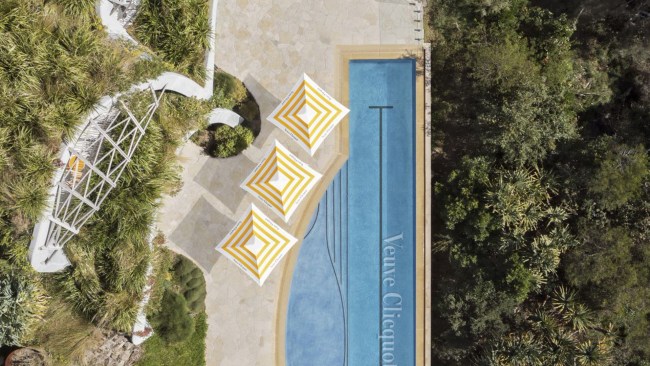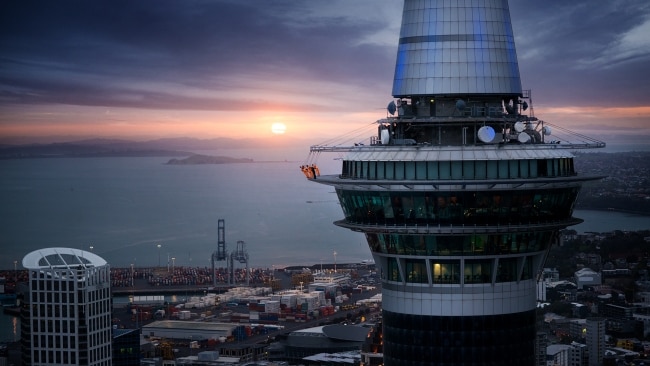A charming colonial boatyard comes with a hint of old spice
THE bed is high and old-fashioned with a striped hand-loomed quilt and on the red-tiled bathroom floor stands a washbasin the size of a laundry tub. There are timber and rattan chairs, a tall armoire and a small writing desk; it's not a glamorous room but it doesn't need to be. The real attractions here are the harbourside location and maritime views.

THE bed is high and old-fashioned with a striped hand-loomed quilt and on the red-tiled bathroom floor stands a washbasin the size of a laundry tub. There are timber and rattan chairs, a tall armoire and a small writing desk; it's not a glamorous room but it doesn't need to be. The real attractions here are the harbourside location and maritime views.
Kochi, in the southwest Indian state of Kerala, sits within a universe of water, and no hotel gives such an immediate flavour of old Fort Cochin's history and sheer industry than the 22-room Brunton Boatyard. They don't build vessels here any more but you could cut away the crow-repelling mesh on your balcony and practically dive into one.
Set up by George Brunton and his sons William and Jack in the 19th century as a shipbuilding yard, this reconstituted three-storey building, with limewashed walls and terracotta-tiled roof, opened as a hotel in 1999 and it fairly hums with history.
There are punkah fans cooling the long colonnades, teak and mahogany spice chests that still smell faintly of cinnamon and cloves, rattan furniture and cabinets of curiosities. Portuguese muskets and Dutch maps point to the colonial history of this fabled spice-trading port.
A massive red-flowering rain tree casts deep mulberry shade over a central courtyard. A waterside pool is framed with palms and a bougainvillea hedge; adjoining it is a jetty, gaily decorated with pots of geraniums, from which sunset cruises (free for guests) depart daily at 5.30pm. These sailings provide good angles to photograph the teak and bamboo swing-and-sway Chinese fishing nets crouched like praying mantises beside Vasco da Gama Square and rows of waterfront warehouses, the once grand repositories of tea, coir and precious spices.
Near Brunton Boatyard's pool are white metal tables and chairs on a groomed lawn and these provide an ideal perch for sipping fresh lime sodas or yoghurt lassi drinks and watching the boats and ferries pass along the shipping channel.
I spend a morning thus ensconced and see dolphin fins dipping and passenger ferries chugging by with names of the ilk of Santa Maria. A car ferry slides past carrying rows of auto-rickshaws and imperilled Ambassador cars, once the sturdy vehicle of choice for higher-ups but now overshadowed by Korean compacts and elephantine four-wheel drives.
In the side garden of the hotel is an Ayurvedic centre where treatments address all manner of ailments, from stiff joints and backaches to migraine and sinusitis. The aim is curative, rather than conventional spa pampering, but a few well-priced beauty therapies are on offer, such as a face massage with oils and a herbal-paste mask, which costs the equivalent of about $12.
Brunton Boatyard is a member of CGH Earth, a well-established Indian company specialising in resorts that display "minimal interference with nature or the local environment, without compromising on luxury". Most of its Ayurvedic retreats and small hotels are in Kerala and the range includes Coconut Lagoon by Vembanad Lake in Kumarakom (heritage bungalows and private pool villas) and Spice Village in Periyar (bamboo and elephant grass cottages in a plantation setting).
Also consider a riceboat cruise for a night or two around the backwaters and bird-busy lakes of Kerala; it's the perfect bookend experience to a stay at Brunton Boatyard where one's toes are all but dipped into the wash of the Arabian Sea.
Susan Kurosawa was a guest of Abercrombie & Kent.
Checklist
Brunton Boatyard, Fort Cochin, Kerala, India. Phone +91 484 221 5461; www.cghearth.com.
Tariff: From 6000 rupees ($145) a double a night plus 15 per cent tax.
Checking in: Guests from across the world, mostly independent travellers.
Getting there: About 40km from Cochin airport; airlines such as Jet Airways fly daily from Mumbai and other main cities in India.
Wheelchair access: Ground-floor rooms available; a small lift up to top floors.
Bedtime reading: The Moor's Last Sigh by Salman Rushdie, partly set in Fort Cochin.
Stepping out: For a historic ramble in Fort Cochin, head to the old quarter of Jew Town, with its historic synagogue and antiques stores, and the Dutch Palace. Lunch beside pink frangipanis in the delightful courtyard cafe at Malabar House and have an afternoon cuppa at the Tea Pot on Petercelli Street. Abercrombie & Kent offers excursions in Kerala, including riceboat cruises: www.abercrombiekent.com.au.
Brickbats: The food at the hotel's History restaurant is a very odd mix of Portuguese, British and Indian flavours. (There's better eating at the Terrace Grill, where fresh seafood is prepared with earthy spices, or even from the cheap room-service menu, which boasts "munchies" and "fairy eats".) The water traffic starts early: prepare to be woken by toots and hoots.
Bouquets: A little foot stool is provided to board one's high four-poster bed; an authentic sense of history with no inappropriate flourishes; every room has a water view (those at the public ferry wharf end could be noisy).


